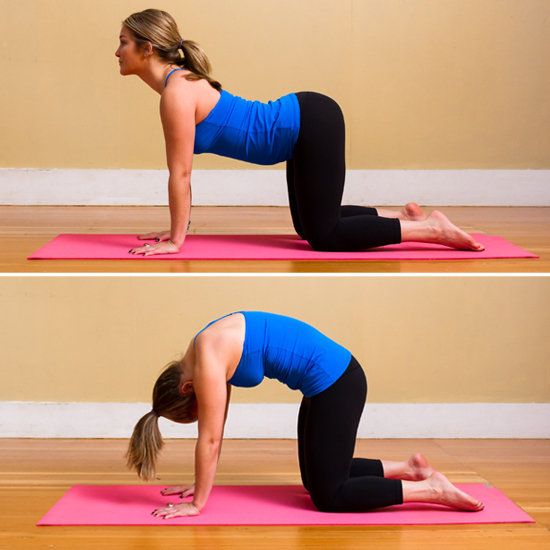
There are many methods and therapies that can be used to manage stress. The goal is often to improve everyday functioning. You can use relaxation or meditation to improve your everyday functioning. Some cases may also include psychotherapy. But, the definition for stress management remains the exact same. The term itself is vague and could be used for many things. To make it clearer, stress refers to the bodily non-specific response that a person has to a particular need.
Stress is a non-specific body response to any demand
Hans Selye proposed the concept for biological stress. He defined it as the non-specific body's response to a range of demands. Based on clinical experiences, Selye outlined three stages in the body's response to stress. These include the initial alarm response, adaptation to ongoing stress, and exhaustion. He predicted that constant exposure to stressful events would lead eventually to death. Such an enduring response is often unstable.

It is a subconscious action
Stress is not something that the subconscious mind can cause. It is essential to avoid it and to suppress it if it is already present in your life. Stress is quite common during college. You are not the only one. Millions are affected by stress at school and in extracurricular activities. There are many stress management methods that you can use. By applying these techniques, you can avoid becoming an example of stress in a society.
It is a type of anxiety
If you are constantly under pressure, you're probably experiencing symptoms of stress management. These symptoms include racing thoughts, irritability, low self esteem, and irritability. You may lose your temper easily or behave more irrationally. You may experience mood swings, muscle tension, and headaches, in addition to stress affecting your mood. Your body releases these hormones as a natural response to the stressor, enabling you to fight or flee. However, chronic stress can cause anxiety and make you feel sick.
It is a kind of dissociation
Dissociation is a psychological response that occurs when you zone out during stressful situations. Psychoanalytic theory says that dissociation is a defense mechanism, which was created as a way to lessen pain and help people cope with difficult situations. However, dissociation is not a helpful coping mechanism in the long run. You should seek professional help if you feel you are experiencing dissociation.
It is a type of self-care
As we age our brains can become more jaded and we lose the ability to enjoy the same things that we once loved. Self-care techniques can be used to help us relax and continue doing the things that we love. They help to balance our nervous systems.

It can lower your risk of getting sick
You may be suffering from chronic stress symptoms. It is time to look at how stress management can help your health. Stress has numerous negative effects on the body. Stress can cause inflammation, damage to cells, and increase metabolic demands. It can also lead to deficiency in certain vitamins and minerals. This cycle can also lead to other health problems. This article will provide you with some tips on how to reduce your stress levels. Here are some.
FAQ
How does yoga affect mental health?
Yoga is an ancient Indian practice. It was used by people to relax and reduce stress. Many people today use yoga to manage anxiety, depression, panic attacks and chronic pain.
Yoga can help improve your physical symptoms, such as backaches, arthritis, headaches, high blood pressure, and other conditions like high blood pressure. Many who have done yoga report feeling calmer, happier.
What happens if you do yoga every day?
You feel calm, relaxed and center. It can improve your posture, balance, flexibility, and overall health.
You become more aware how your body feels as you move. This awareness can make you more aware and conscious about yourself.
Your concentration can also be improved by yoga.
Your mind becomes more sharp and clear. It calms down your nervous system. It lowers stress levels. It gives you a feeling of well-being and peace.
Where can I find a yoga instructor who is experienced?
Find qualified yoga instructors in your area. You may also be able to search for a teacher online if you aren't located near a studio. A yoga class that offers online registration might be worth your consideration.
Can women do Yoga?
Absolutely! All women are welcome to do yoga, regardless of gender.
Yoga can be done in many styles for both men and women.
Is there a lot of sweating involved in yoga?
This depends on which style of yoga is being practiced. Vinyasa flow (or Power) yoga involves lots jumping, twisting and turning movements. As a result, it's common for people to sweat heavily while practicing.
Hatha yoga, on the other hand, focuses more on forwarding bends or twists. These poses don't require a lot of sweat, so most people won't feel much perspiration.
Do I need warm up before I do yoga
No. It's not necessary to warm-up before doing a yoga session.
However, stretching your muscles before going to exercise can help to relax stiff or sore muscles.
Statistics
- The people in the yoga group were 37 percent more likely to have quit smoking by the end of the 8-week program. (nccih.nih.gov)
- Lock in 25% off your Founding Member rate. (corepoweryoga.com)
- Gentle yoga has been shown to ease some of the discomforts of tender, swollen joints for people with arthritis, according to a Johns Hopkins review of 11 recent studies. (hopkinsmedicine.org)
- In comparison, a 125-pound person is estimated to burn 135 calories in 30 minutes of walking (at a pace of 15-minute miles) and 210 calories bicycling at a moderate pace on a stationary bike. (everydayhealth.com)
- A 2020 review of 27 studies (1,805 total participants) of yoga interventions in children or adolescents found reductions in anxiety or depression in 70 percent of the studies, with more promising results for anxiety. (nccih.nih.gov)
External Links
How To
Is it a good way for you to lose weight?
To answer that question, we need to first define yoga. Yoga is an ancient form of exercise that originated in India. It was designed by Indian yoga practitioners who were seeking spiritual enlightenment and physical fitness.
Yoga is about strengthening muscles and relaxing the body. The goal is to relax completely and be free from anxiety or stress. Focusing on breathing techniques and meditation are the best ways to do this.
The practice of yoga involves various postures (poses), which are designed to strengthen specific muscle groups and stretch others. These poses are typically held for several seconds at a time. They could also involve slow walking, jumping, and moving through mud.
The goal of yoga not to burn calories, but to increase energy is the main objective. Most people who practice yoga are able to maintain a healthy body weight.
You will notice a difference in your ability to relax when you practice yoga. You'll experience a shift in your moods and be more comfortable sleeping.
You'll feel younger and your skin will glow.
Yoga can help people lower their blood pressure.
Research has also shown that yoga may help reduce the symptoms of depression.
Yoga does not work in the same way that other forms of exercise. Yoga increases oxygen flow throughout the body. This allows your brain to relax, releasing endorphins that can stimulate feelings of happiness and joy.
It is important to note that weight loss may be a problem for some people because of their genes. If you are one of these individuals, it may be best to not do yoga until reaching your ideal weight.